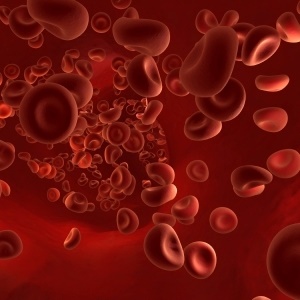
Sickle cell disease (SCD) is an umbrella term for an inherited group of blood disorders that affect the red blood cells.
A previous Health24 article explains that red blood cells affected by SCD have a unique crescent shape and are unable to supply enough oxygen to sustain the body.
SCD causes blood cells to stick to one another and form clusters in the bloodstream. These clusters can expand and block the flow of blood and oxygen, causing damage to blood vessels and organs.
The disease is chronic, lifelong and debilitating, and differ in clinical severity.
Symptoms of SCD include:
- Chronic pain
- Severe anaemia
- Increased risk of recurrent infections
- Stroke (clinical and silent)
- Pale skin
- Jaundice
- Headache
- Dizziness
- Seizures
The most common type of this disease is known as sickle cell anaemia (SCA).
World Sickle Cell Awareness Day
World Sickle Cell Awareness Day has been held annually since 19 June 2019 and was initiated by the United Nations. It aims to raise awareness about SCD and the struggles of those living with the disease.
Patients with SCD usually have shortened lifespans, living only to their 40s. However, early diagnosis, simple medical care and overall patient education can improve patients’ life expectancy. The latest estimates indicate that millions of patients worldwide live with SCD, and around 300 000 babies are born with the disease annually.
In support of World Sickle Cell Day, and in an effort to improve health outcomes for people with SCD, the American Society of Hematology (ASH) presented a webinar and convened global health experts, media and its Sickle Cell Disease Coalition partners to address the urgent need to raise global awareness of the debilitating disease.
Recent efforts include two new videos, one of which is a documentary that addresses the importance of newborn screening, and counters the myths about the disease in sub-Saharan Africa. The documentary is a collaboration between pharmaceutical company, Novartis, and world-renowned documentarian, Dr Alexander Kumar.
SCD in the developing world
In the developing world, particularly sub-Saharan Africa, an estimated 50–90% of infants born with SCD will die before their fifth birthday. Even though public health measures such as newborn screening, vaccinations, and early interventions have been proven to improve childhood survival, SCD continues to be a major global public health issue.
Medical research literature defines the disease as one of the most common genetic blood disorders in the world, and the United Nations considers it a global health problem requiring urgent action by member countries and relevant stakeholders.
Although the disease impacts many different populations around the world, it disproportionately affects people from sub-Saharan Africa. It is also common among people with ancestry from South America, Central America, and India, as well as several Mediterranean countries, including Italy and Turkey.




 Publications
Publications
 Partners
Partners















